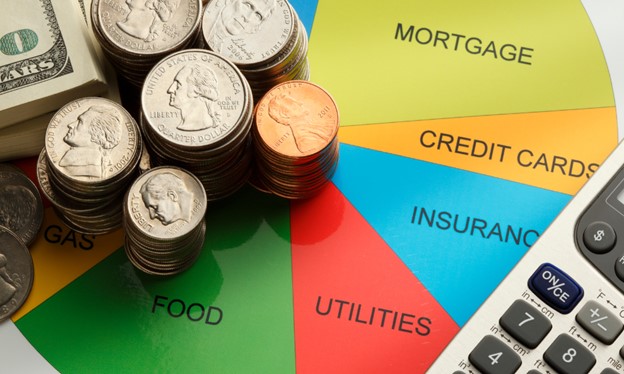How to Calculate Mortgage Payments
 Calculating mortgage payments involves several variables, including the loan amount, the interest rate, and the loan term. Here are the steps to calculate mortgage payments:
Calculating mortgage payments involves several variables, including the loan amount, the interest rate, and the loan term. Here are the steps to calculate mortgage payments:
Determine the loan amount: This is the amount you will borrow to purchase the property. For example, if you plan to buy a house for $300,000 and you plan to put down a 20% down payment ($60,000), your loan amount will be $240,000.
Determine the interest rate: The interest rate is the cost of borrowing the money. It is expressed as a percentage. For example, if the interest rate is 4%, you will pay 4% of the loan amount in interest each year.
Determine the loan term: This is the length of time over which you will repay the loan. For example, if you have a 30-year mortgage, you will make 360 monthly payments (30 years x 12 months).
You can use the following formula to calculate your monthly mortgage payment:
M = P [ i(1 + i)^n ] / [ (1 + i)^n – 1]
Where:
M = monthly mortgage payment
P = loan amount
i = interest rate (monthly)
n = loan term (number of months)
Using this formula, you can calculate your monthly mortgage payment by plugging in the values for P, I, and N.
Alternatively, you can use a mortgage payment calculator to calculate your mortgage payment If you choose a mortgage calculator, you will need to know your income, expenses, and debts. This information will help you determine how much you can afford to borrow. You can find a mortgage calculator online or through a mortgage lender’s website. Make sure you use a reliable calculator. Once you have a mortgage calculator, enter your financial information into the calculator. This includes your income, expenses, debts, and the loan term. Use the calculator to adjust the variables such as the interest rate, down payment, and loan term to see how they affect your monthly payment and the total cost of the loan.
The mortgage calculator will provide you with an estimate of how much you can afford to borrow, what your monthly payment would be, and the total cost of the loan. Make sure the results fit within your budget and financial goals. If you’re ready to move forward with a mortgage, it’s a good idea to consult with a mortgage lender to discuss your options and get pre-approved for a loan. They can also provide you with more information on closing costs and other fees associated with the mortgage.

 Creating a household budget can be a helpful way to track your spending and ensure you are meeting your financial goals. You will need to examine your fixed expenses that are the same each month, such as rent or car payments and your variable expenses that change each month, such as groceries or entertainment. Dealing with debt can be challenging but incorporating it into your budgeting strategy can help you regain control of your finances. Here are some steps you can take to effectively manage your debt while budgeting:
Creating a household budget can be a helpful way to track your spending and ensure you are meeting your financial goals. You will need to examine your fixed expenses that are the same each month, such as rent or car payments and your variable expenses that change each month, such as groceries or entertainment. Dealing with debt can be challenging but incorporating it into your budgeting strategy can help you regain control of your finances. Here are some steps you can take to effectively manage your debt while budgeting: Many millennials find home buying overwhelming due to a variety of factors such as high housing prices, student loan debt, competition from investors, economic uncertainty, and a lack of knowledge about the home-buying process. These challenges can make it difficult for millennials to save enough money for a down payment, find a suitable property, and navigate the complex process of buying a home.
Many millennials find home buying overwhelming due to a variety of factors such as high housing prices, student loan debt, competition from investors, economic uncertainty, and a lack of knowledge about the home-buying process. These challenges can make it difficult for millennials to save enough money for a down payment, find a suitable property, and navigate the complex process of buying a home.